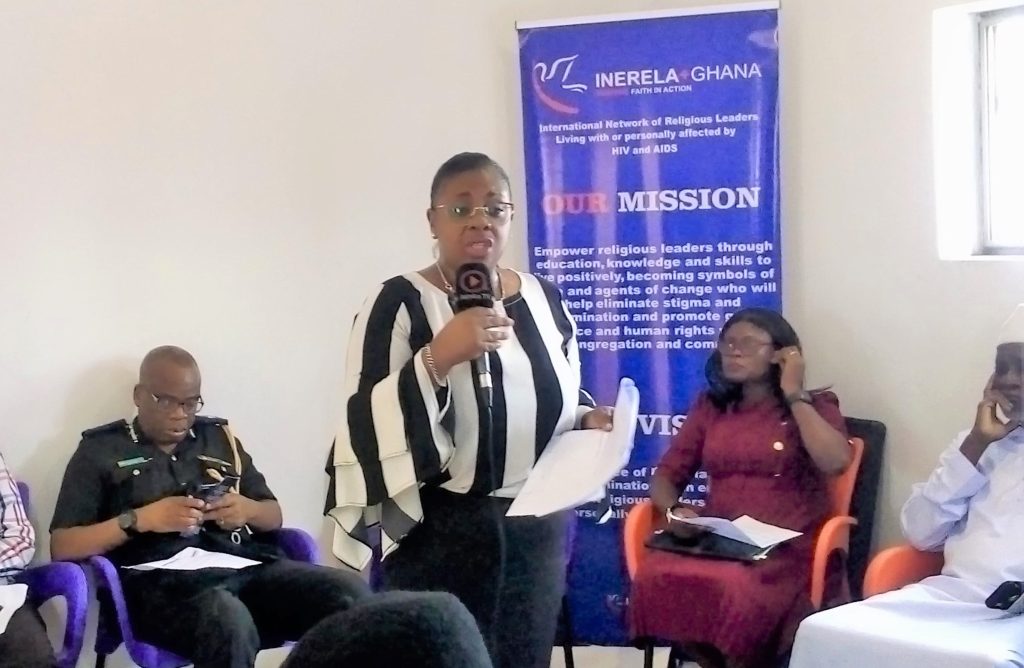By Benjamin A. Commey
Accra, April 01, GNA — The Paramount Chief of Nima, in the Ayawaso East Municipality of the Greater Accra Region, Nii Futah, has urged Parliament to consider amending sections of the law which allow a girl child the right to consent to sex aged 16.
According to him, this would help address the legal discrepancies that existed between when a girl could consent to sexual relationships and the legal marriage age.
Nii Futah made the call during a Capacity Building Engagement on Gender Based Violence and HIV, held for traditional leaders and some community members at Nima, in Accra.
The engagement, organised by the International Network of Religious Leaders Living with or personally affected by HIV/AIDS (INERELA+ Ghana), with funding from the United Nations Women Trust Fund, aimed at increasing knowledge and awareness on gender-based violence and HIV and AIDS.
Currently, Ghana’s Criminal Offences Act, 1960 (Act 29), pegs the age of sexual consent at 16 years old, the minimum age at which an individual is considered legally old enough to consent t9lo participate in any sexual activity.
However, the country’s Children’s Act and the Criminal Procedure Code 1998 (Act 30), set the legal age for marriage at 18.
Nii Futah noted that, the two years period between the ages of consensual relationships and marriages were a recipe for disaster.
He said: “The issue of marriage, I believe that, is not about when a girl gets married earlier than 18 or so she is more likely to have STDs or so, I do not think there is any study in that. The problem remains education and maturity, making a girl, having her properly educated and mature to look after a home, I have no problem with that.
“But, if a girl can go into a relationship at 16, and she can sleep with a man at 16 without any responsibility and that is allowed by law and that law prevents that girl from getting married so that the man can take responsibility over that girl, there is something wrong with that.”
He added that: “You know, society gets frightened with this, and I cannot prevent my girl from having an affair with a boy at the age of 16 because, if you say she has a right to do so ,then, that means I do not have the right to stop her from doing it, with all its consequences, but she should wait until 18 then, on her own consent get married.
“I have heard this a few times. I don’t know how it managed to get into our constitution, but definitely, there’s something wrong with that constitution. If it is also a law outside of the constitution, that is, a Legislative Instrument (LI) whatever, then, we must look at it carefully.”
Nii Futah also expressed concern about the recent rise in HIV infection in the country, adding that the government must intensify education on the virus to curb the trend.
Nana Yamfoah Amua Sekyi, Director, Public Education, Commission on Human Rights and Administrative Justice (CHRAJ), said the Children’s Act seriously frowned on child marriages and warned parents against encouraging such act.
According to her, children whose hand were given in marriage become a burden not only to their families but also to society.
Chief Superintendent Eric Asiedu, Nima Division Police Command, said the command took seriously issues of defilement, and emphasised the need for community leaders not to protect perpetrators of such crimes.
He also entreated parents not to shirk their responsibilities to protect them from falling into the hands of sexual predators.
Mrs Paulina Louisa Essel, a Certified Counselling Psychologist, CHRAJ, bemoaned the continuous stigmatization against persons living with the virus

Speaking on the effect of HIV and mental health, she explained that stigmatisation remained a major challenge to the fight against HIV in the country, including getting affected persons to go for the anti-retroviral drugs.
“The effect is that many feel ashamed when they are stigmatised, causing them to go into isolation,” she said.
She appealed to the traditional leaders to help sensitize their communities on the disease and the negative impact of stigmatising against persons living with the virus.
Mrs Mercy Acquah-Hayford, National Coordinator for INERELA+ Ghana, entreated pregnant women living with HIV to disclose their statuses on time for early treatment to protect their unborn babies from contracting the virus.
GNA